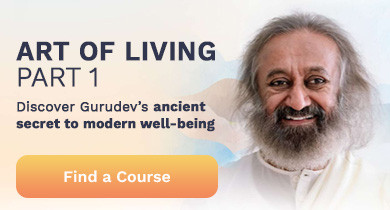By Jade Doherty
Struggling to go back to normal? Find out how meditation can help you deal with stressful living in a post-pandemic world.
I don't know about you, but this is not what I'd expected 2021 to be like. Or 2020. The global pandemic took us all by surprise, and since March/April last year, life has been...different.
From the first lockdowns that were meant to flatten the curve, to the bulk-buying-toilet-paper phase, to trying to get on like everything is normal. Not to mention a presidential election! Talk about stressful living!
Now, we find ourselves halfway through 2021, trying to get back to normal. Or a new normal.
For a lot of people staying home was stressful. We've all probably been to a lifetime's worth of Zoom meetings at this point! ("Hi...can you hear me...ok I'm trying to share my screen..."), have gotten used to taking our masks with us before leaving the house, and adjusted to not seeing friends and family so much.
Other people might have actually benefited from work and life being lived indoors. If you have health or mobility issues I imagine everything being online would have been very welcome, and might have even changed your company's WFH policies.
But now that things are opening again, that could be causing you more stress than you'd imagined. Either because life was better for you with so much of it being online, or because you feel different after a year of not really seeing anyone.
I know the phrase "unprecedented times" has been used a lot lately, but I honestly don't remember anything like this in my lifetime, and going back to normal after such a different year can be a big adjustment.
So, with that in mind, in this article, I want to look at the causes and effects of stress, and how meditation can be a great way to handle stress, be it in this post-pandemic world, or in general.
What is stress?
Stress can be defined as:
"a physical, mental, or emotional factor that causes bodily or mental tension. Stresses can be external (from the environment, psychological, or social situations) or internal (illness, or from a medical procedure). Stress can initiate the "fight or flight" response, a complex reaction of neurologic and endocrinologic systems."
And there's been plenty of situations that would cause stress! Maybe your mental health suffered during the pandemic, maybe being at home so much was itself stressful, especially depending on your home life. Maybe you lost your job, or witnessed a loved one suffering and were unable to be there for them in the way you would have liked.
I think there are very few people who have not been affected by the last 12-18 months.
Now, this isn't to say that all stress is bad. A few stressful days here and there are fine. But chronic stress starts to wear us down and has adverse effects on our health and well-being.
You can sprint for a little while, but sprinting for a long time, like a marathon of sprinting, would be hard for anyone.
What are the effects of stress?
We all know that feeling stressed doesn't feel good. It goes without saying. This stress can cause us to snap at our loved ones, forget to eat, or not sleep well (if at all).
But the damaging effects of long-term stress go way beyond this.
Stress and Your Memory: Stress can have a detrimental effect on your memory, and even increase the risk of Alzheimer's Disease and Dementia. In one study researchers at Harvard University discovered that stress can result in the brain going into "survival mode", resulting in a reduction of cognitive abilities. So if you've ever noticed that you become very forgetful when you're stressed, this could explain why.
Stress and Your Brain: Increased and prolonged stress can even start to have an impact on your brain mass, and structure. Researchers found the brain began to atrophy in size, again leading to a reduction in cognitive abilities and memories.
Stress and Depression: Long-term stress can also increase your chances of developing depression. Maybe you've experienced that, either in yourself or in others. A stressful life event occurs and starts a downward spiral into depression.
Stress and Your Body: While we typically think of stress as a mental challenge, it can also have a big effect on your body. It can lead to physical symptoms such as headaches, insomnia (which comes with its own set of problems), missed or irregular periods, rapid breathing, high blood pressure, and even increase the risk of a heart attack.
None of this is meant to scare you. I don't want to make you stressed about being stressed. Rather, I want to highlight that if you feel stressed, that is something to take seriously.
It doesn't mean you're weak, or making it up, or making a big deal out of nothing. Stress is an important issue to take seriously and make a priority. If you had a cut or a broken bone, you'd get help to deal with it. But with stress, so many of us have normalized it, ignored it, or even seen it as a badge of honor that we're working hard and hustling.
How do you deal with stress?
There are many ways we can deal with stress, some that are helpful, and others that actually make it worse.
A very common impulse when feeling stressed is to find a way to numb it. How we do that may vary. Some choose alcohol, others choose drugs, or sex, or food. While it may momentarily numb us and take the pain away, these crutches don't solve the problem, and often result in even bigger problems we have to deal with later. Namely addiction and its consequences on our health, work, and relationships.
Sometimes we throw ourselves into something else. If the stress is coming from home, we might throw ourselves into work. Work feels easier to deal with than a relationship on the brink, or a child that is acting out. Again, this doesn't solve the problem and can result in the area of life that desperately needs attention being neglected.
So, what are better ways to deal with stress?
If alcohol is off the table, what else can you do to manage stress?
Fortunately, there are many good stress management techniques available to you that will not only help you handle stress but can also help to solve the cause of stress.
Getting help: Many people benefit from going into therapy. It helps you to manage your stress and develop new coping techniques to deal with the initial cause of your stress too. Working with a qualified therapist is a great tool, and nothing to be ashamed of.
Healthy habits: Depending on the severity of your stress, healthy habits can give a real improvement. There are a lot of things we do in our day-to-day lives that are not actually helpful (caffeine I'm looking at you!), and creating better habits for yourself, be it around food, exercise, a sleep schedule, or even more time to just relax, can also help.
Meditation: Chances are you've heard people talk about meditation, mindfulness, yoga, and breathwork. All of these techniques can be used to help manage stress, and give you more peace of mind and body.
You, meditation, and stress: where to start?
For the last 40 years, The Art of Living Foundation has been teaching SKY Breath Meditation. It's a breath-based meditation that has changed the lives of millions of people.
70+ studies on 4 different continents have all found the efficacy and benefits of SKY. SKY has been shown to be effective at reducing stress, depression, anxiety, and even increasing immune cell count, and reducing the stress hormone cortisol.
Some of the benefits of SKY include:
Physical health benefits of SKY
Reduces stress
Improves overall health and well-being
Boosts energy levels
Strengthens immune system
Reduces cholesterol levels
Healthier blood pressure
Reduced addictive behaviors
Improved respiratory function
Mental health benefits of SKY
Greater clarity of mind and mental focus
Enhanced deep sleep
Enhances brain function
Improves ability to manage challenging situations
Boosts creativity
Increased life satisfaction
Improved interpersonal relationships with SKY
More ease and harmony in personal and work relationships
A deeper sense of community
Increases awareness of self and surroundings
Improves patience
Increases confidence and self-esteem
Psychological benefits of SKY
Relieves depression (both clinical and non-clinical)
Reduces anxiety (both clinical and non-clinical)
Reduces PTSD with quick and long-term effects
Enhanced optimism
Increased self-esteem and joy
Spiritual benefits of SKY
Increases inner peace
Deeper connection with your inner self
Increases compassion
Broad vision
So, as you can see, it's a great addition to your life, and can be learned in just 3 days!
Getting started with SKY
If any of this article sounds like you're stressed about going back to work if hugging friends makes you feel scared and uncomfortable, if the pandemic has taken its toll on your mental health, or if you had a pre-existing tendency to be stressed, I have an invitation for you.
I'd love to invite you to join us for a free Beyond Breath workshop. Beyond Breath gives you an introduction to the full SKY program. You will learn a simple breathing technique and will have an expert instructor there to answer any questions you have and further explain what to expect on the full course.
Click the image below to save your spot.
Jade Doherty is a freelance copywriter, meditator, and traveler, who is currently exploring and learning to surf in Goa, India.




























